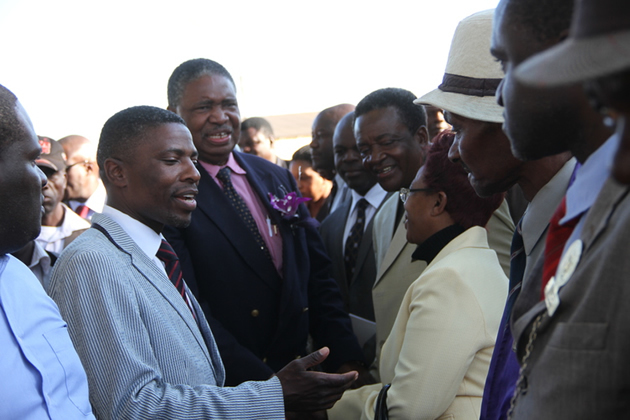Electoral Court defers ruling on Nduna’s Chegutu West win

The Zimbabwe Electoral Commission (Zec) had initially announced Nduna as the winner with 10 932 votes, and Konjana with 10 828 votes. Konjana challenged the result, claiming the electoral body mixed up the figures.
While Zec reportedly admitted to have made an error, the electoral body advised Konjana that the results could only be overturned by the Electoral Court.
This prompted Konjana to file a petition with the Electoral Court in Harare seeking the nullification of Nduna’s declaration, adding a tabulation error occurred and prejudiced him of 120 votes that had been erroneously awarded to one Simon Kache of UCADPGPZ.
Following claims by Konjana, the Electoral Court had set Monday as the date to pass judgment.
Magistrate Mary Zimba-Dube who presided over the matter postponed the ruling to next Monday to allow the parties to bring more evidence.
Nduna, in his heads of argument maintains that the Electoral Court does not have the jurisdictional ability to nullify a declaration made by the electoral body and thereafter pronounce an alternative winner.
He also claims that Zec and Konjana worked hand in glove to forge signatures of polling agents as they played around with figures allegedly to ensure Konjana is declared the winner.
A case of fraud has since been filed with the police against Kundai Goremusandu, who was a presiding officer at one polling station in the constituency, according to Nduna.
“The relief the petitioner (Konjana) seeks is irregular in that it is not contemplated by statute. Firstly, the petitioner predicates his cause on section 66 (4) (a) of the Electoral Act. Under such provision the Electoral Court only has power to ‘set aside’ a declaration and go no further.
“Under this provision the said court cannot ‘nullify’ a declaration and thereafter pronounce an alternative winner as prayed for by the petitioner. This is incompetent relief,” Nduna argued.
“In terms of section 66 (4) (c) as read with section 67A of the Electoral Act, this court only has power to declare another candidate the winner of an election after a recount of votes.
The petitioner is therefore asking the court to exercise powers beyond the jurisdictional ability of the statutory provision he seeks to rely on. An exercise of power beyond the jurisdictional ability of a court is irregular and void ad initio….”
Besides the jurisdictional ability of the Electoral Court, Nduna further said Konjana’s petition was afflicted with a myriad of procedural irregularities and therefore urged the court to dismiss it.
“As better explained herein below, the noncompliance with the rules and the strict dicta of statute is fatal to the proceedings and should actuate the dismissal of the petition,” he said.
“Put plainly, this matter must turn on a question of law rather than the facts, which if carefully considered, would still not substantiate the petitioner’s prayer.”
Nduna argued the present petition is strange.
“In the draft order the petitioner then seeks to impugn a declaration made by a constituency election officer, who is not named.
In fact, the draft order doesn’t even state the date when the declaration was made . . . the present petition does violence to this rule by describing an incomplete prayer on the face of the petition and then alluding to differently wondered relief in the draft order,” he said. Daily News.






